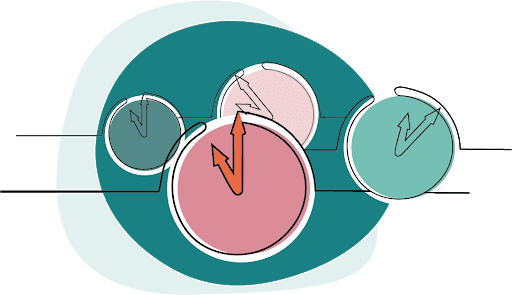Ben Legg
The life of a portfolio professional is inherently varied. Much of your time is spent juggling clients, picking up projects and building connections, all as means of diversifying your portfolio and establishing – for lack of a better word – “street cred”.
The more clients you have, the more work you can showcase. As that builds, you expand your workload and grow your business as a sole-trader. The diversity is intellectually stimulating, but you spend an enormous amount of time trying to define what each client wants and how you will deliver it in a bespoke way.
Have you thought about streamlining that process? What would the benefits be if you could offer a unique service that was neatly packaged and sold as a ‘product’ to multiple clients?
Just think about all the time you could save; all the energy that could be channeled into other parts of your business. Time is our most valuable asset, simply because there just aren’t enough hours in the day to accomplish everything we want to get done.

Of course, part of the thrill of being a sole trader is the diversity of work you can take part in. But for those of you that are hoping to maximise your earnings or eventually turn your side hustle into a full-blown business, being able to establish a clear product or package is a huge step in the right direction.
Anyone who’s new to self-employment can attest to the fact that a lot of time is spent trying to work out the kinks. You end up spending a big portion of your time – sometimes billable, sometimes not – customising your service to every organisation that hires you. With every client or project treated differently, the work can become mentally exhausting and make it difficult to juggle other projects.
Every time you take on a new client, it can feel like you’re starting over. But when you package up your services as a defined product, much of that leg-work is already done. This is especially effective if you offer a consulting service like recruitment, coaching or market research where you can use your specialised skills to build a framework for future projects.
It’s all about delivering more value with less frustration. The more streamlined your processes are, the easier it will be for you to package your services and sell them en masse. That’s because 86% of clients are willing to pay more for a great customer experience. And if you offer an off-the-shelf solution that provides better return with less back-and-forth, you’re likely to land more clients and build your portfolio at a faster rate.
Potential clients are drawn to a packaged offering because they:
- Understand clearly what they are going to get from you
- Buy into your core framework/ process/ data
- Can see that you have done this before and are good at it
- Know what they will pay
Let’s put this in a real life context. Brian Casel was an entrepreneur and product designer who had been working in client services since 2008. After several years of trial-and-error, he realised that productisation could allow him to build several successful consulting businesses at the same time. From there, he established a scalable business model that helped him package his marketing services to multiple niche groups – some of his businesses include Restaurant Engine, Audience Ops and ProcessKit.
Currently, he runs an online community called Productize and Scale designed to help others figure out how to package their services and grow their business.
This process will be different for everyone. If you’re a consultant or a coach, you can build specialised training courses. Or maybe you’re a hiring manager who offers a unique service on diversity and inclusion – it’s all about understanding the market and building off your particular niche.
Your service can be a:
- Process
- Course
- Consultation
- Training session/ workshop
- Survey, audit or benchmarking tool
- Data set
- Report
- Physical product
Or if you don’t have a particular service to productise, consider packaging up your expertise and insights.

Many people have found success sharing insights into their industry on channels like YouTube or LinkedIn, or through expert networks such as GLG. If you have a big enough following, you can even charge people to attend a workshop or course that you run.
The key to successful productisation lies in your ability to systemise your delivery. Things like pricing, delivery times and the services you offer can be standardised so you don’t have to spend as much time on pitches and proposals.
At the end of the day, it all boils down to patterns. Pay attention to what people need and build on that. You can leverage your experience to deliver a better product than your competitors. The more successfully you deliver that product, the easier it is to bring in new business, especially when people are referring you through word of mouth.
Take notice of what clients need from you but never think to ask for. For example, if you’re a content marketer who puts together blog strategies, can you tack on an additional SEO review as part of the same package? Or maybe you’re a website designer and you offer a service that also ensures accessibility for visually impaired users. These little bonuses will feel like a nice treat for clients, when really they’re things you know people should be asking for to begin with.
Keep a list of the requests that consistently come up. These will be your bread and butter. By adding in the additional “nice-to-haves” and creating a process that works for you, you’ll deliver a product that offers high value and takes you less time to do.
Software as a service (SaaS) is a great example of how productising can help increase revenue. Most software companies offer a set of packages with different pricing tiers that include varying features. According to the Gartner Group, global SaaS revenue is expected to reach over $331 billion in 2022, proving this method is widely successful.
So why can’t sole traders tap into the same business model? Of course, not everyone has software they can offer, but you can still combine multiple services into different tiered packages in much the same way.
When you offer a comprehensive product with clear cut benefits and bigger savings, you’re starting off from a place of trust. And your clients are likely to have more confidence in your capabilities because you skip the process of proving your expertise. The more your clients are buying into the product/ process rather than into you personally, the easier it becomes to outsource some work to other (lower paid) people, or to automate the process and save yourself time. This can either help you earn more, or become the foundation of an actual company.

By productising your services, you’re not only increasing your income—you’re creating something scalable. And that, in turn, lays the foundations for future enterprises.
Think this sounds like the right path for you? Come along to our monthly Community Welcome Call for new members to find out what a portfolio career could look like and how The Portfolio Collective can help you take those first steps towards professional success – and don’t forget to connect with our community!




One response to “Earn more and scale faster by ‘productising’ your service”
This could almost be a module on the Catapult course – it is such an important concept